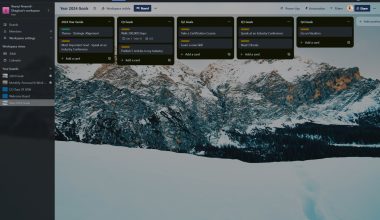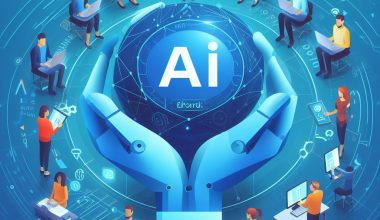Introduction
Previously, we talked about how to transition to Tech and the various fields available to Tech. The post gathered a lot of views and several questions. In this blog post, we will be looking at how to map your skills to the various categories and fields in Tech. This would help you make a better decision on which areas in Tech to transition to. Happy Reading!
If you’re a non-techie thinking about transitioning to a career in tech, you may be wondering how your current skills and experience can relate to the different tech fields. Here’s a brief overview of the several categories you mentioned, along with some examples of how your skills in marketing, analysis, or support could translate:
Marketing
- Digital Marketing: If you have experience in marketing, you may be well-suited for a career in digital marketing. Digital marketers use a variety of online channels, such as social media, search engine optimization (SEO), and email marketing, to promote products and services. They also analyze data to measure the effectiveness of their campaigns.
- Product Management: Product managers are responsible for the development and launch of new products or features. They work with cross-functional teams to gather requirements, define the product roadmap, and ensure that the product meets the needs of users.
Analysis
- Data Analysis: Data analysts collect, clean, and analyze data to extract insights and trends. They use this information to help businesses make informed decisions about everything from marketing campaigns to product development.
- Business Analysis: Business analysts work with stakeholders to understand and document business requirements. They also identify and analyze business problems and develop solutions.
- System Analysis: System analysts design, develop, and implement computer systems. They work with users to understand their needs and develop systems that meet those needs.
Support
- Database Administrator (DBA): DBAs are responsible for the management and maintenance of databases. They ensure that databases are available, secure, and performant.
- Software Testing / Quality Assurance (QA): Software testers and QA engineers test software to identify and fix defects. They also work to ensure that software meets quality standards.
Project Management
- Project Management: A project manager in tech similar to other fields is responsible for planning, executing, and delivering technology projects on time, within budget, and to scope. They oversee all aspects of the project, from the initial requirements gathering to the final deployment.
- Scrum Master: A Scrum Master is a coach and facilitator who helps teams implement Scrum, a popular agile development framework. Scrum is based on the idea of iterative development, where teams work in short cycles to deliver working features of software.
Creatives
- UI/UX Designer: A UI/UX designer is responsible for the design of the user interface (UI) and user experience (UX) of digital products. This includes the design of the visual elements of the product, such as the layout, typography, and color palette, as well as the overall flow and interaction of the product.
Development – Software
- Front-end engineer: Front-end engineers are responsible for the design and development of the user interface (UI) of websites and web applications. They use HTML, CSS, and JavaScript to create a visually appealing and user-friendly experience.
- Back-end engineer: Back-end engineers are responsible for the development of the server-side logic of websites and web applications. They use programming languages such as C#, Python, Java, and Ruby on Rails to build and maintain the databases, servers, and APIs that power websites and web applications.
- Web developer: Web developers are a broad term that can encompass both front-end and back-end engineers. However, web developers are typically responsible for the full-stack development of websites and web applications, meaning they work on both the UI and server-side logic.
- Mobile app engineer: Mobile app engineers are responsible for the development of mobile applications for smartphones and tablets. They use programming languages such as Java, Kotlin, and Swift to build native mobile applications. They may also use cross-platform development frameworks such as Flutter and React Native to build mobile applications for multiple platforms.
- Game developer: Game developers are responsible for the development of video games. They work on a variety of tasks, including game design, programming, and art. Game developers use a variety of programming languages and tools to create video games.
- E-commerce developer: E-commerce developers are responsible for the development and maintenance of e-commerce websites and web applications. They use a variety of programming languages and technologies to build and maintain e-commerce websites and web applications.
Development – Others
- IT infrastructure engineer: IT infrastructure engineers are responsible for the design, implementation, and maintenance of the hardware and software systems that support IT services. They work with a variety of technologies, including servers, networks, storage, and cloud computing.
- DevOps engineer: DevOps engineers are responsible for bridging the gap between development and operations teams. They work to automate and streamline the software development and deployment process. DevOps engineers also work to improve the quality and reliability of software.
- RPA engineer: RPA (robotic process automation) engineers are responsible for developing and implementing RPA solutions. RPA solutions are software robots that can automate repetitive tasks, such as data entry and customer service.
- Cloud engineer: Cloud engineers are responsible for the design, implementation, and management of cloud computing infrastructure. They work with a variety of cloud computing platforms, such as Amazon Web Services (AWS), Microsoft Azure, and Google Cloud Platform.
- IoT engineer: IoT (Internet of Things) engineers are responsible for the development and implementation of IoT solutions. IoT solutions are systems that connect physical objects to the internet, allowing them to collect and exchange data. IoT engineers use a variety of programming languages and tools to develop IoT solutions.
- Blockchain engineer: Blockchain engineers are responsible for the development and implementation of blockchain solutions. Blockchain is a distributed ledger technology that is used to create secure and transparent transactions. Blockchain engineers use a variety of programming languages and tools to develop blockchain solutions.
Skills Mapping to Tech Fields Examples
Here are some specific examples of how your skills in the categories above could be applied in each tech category:
Marketing
- Digital Marketing: You could use your marketing skills to develop and manage digital marketing campaigns for tech companies. You could also work as a content marketer, creating and distributing content that promotes tech products and services.
- Product Management: You could use your marketing skills to understand the needs of tech users and develop products that meet those needs. You could also work as a product marketing manager, promoting new tech products and features to potential customers.
Analysis
- Data Analysis: You could use your analysis skills to work as a data analyst at a tech company. You could also work as a business analyst or system analyst, using your data analysis skills to identify and solve business problems.
- Business Analysis: You could use your business analysis skills to work as a business analyst or product manager at a tech company. You could also work as a consultant, helping tech companies to improve their business processes.
- System Analysis: You could use your system analysis skills to work as a system analyst or software engineer at a tech company. You could also work as a consultant, helping tech companies to design and implement new computer systems.
Support
- Database Administrator: You could use your database skills to work as a database administrator at a tech company. You could also work as a database consultant, helping tech companies to improve their database management practices.
- Software Testing / Quality Assurance: You could use your testing skills to work as a software tester or QA engineer at a tech company. You could also work as a test manager, leading a team of testers.
Project Management
- Project Management: You could use your skills in Project Management to work as a Project Manager for Tech projects.
- Scrum Master: You could use your skills as a Project Manager to also work as a SCRUM Master to help facilitate scrum meetings and help remove blockers for the Engineers. You just need to understand Agile and SCRUM and all the scrum ceremonies.
Creatives
- UI/UX Designer: You can use your skill as a creative, graphics designer to work as a UI/UX Designer to help design User Experience and User Interfaces for Products.
No matter what your current skills and experience are, there’s likely a place for you in the tech industry looking at the skills mapping to tech fields. With a little research and effort, you can make a successful transition to a tech career.
Here are some additional tips for transitioning to tech:
- Network with people in tech. Get to know people who work in the tech field and learn about their jobs. Attend industry events and meetups.
- Learn new skills. There are many online and offline resources available to help you learn new tech skills. Consider taking a coding boot camp or online courses, especially on freecodecamp.org.
- Build a portfolio. Showcase your skills and experience by building a portfolio of your work. This could include personal projects, contributions to open-source projects, or freelance work.
- Start small. You don’t need to start your tech career with a senior-level role. Consider starting with an entry-level position or internship.
With hard work and dedication, you can make a successful transition to Tech with skills mapping to the right tech fields. In the next article, I will tell you the best free courses to take for different fields and a roadmap. What else would you like me to talk about? Drop your comments. There is an updated version to this article here.







1 comment